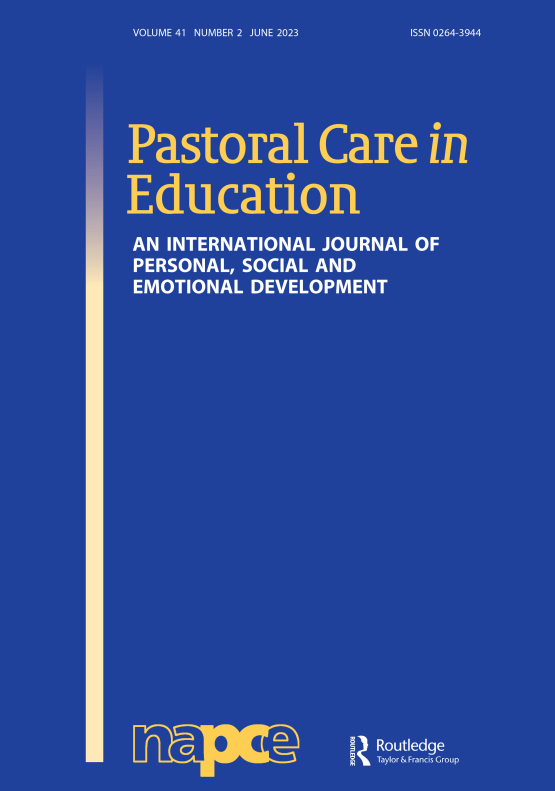Submit a Manuscript to the Journal
Pastoral Care in Education
For a Special Issue on
Children’s friendships in educational contexts
Abstract deadline
15 February 2024
Manuscript deadline
12 June 2025

Special Issue Editor(s)
Dr Caron Carter,
Sheffield Hallam University
[email protected]
Yan Zhu,
University College London
[email protected]
Kate Adams,
Leeds Trinity University
[email protected]
Children’s friendships in educational contexts
Friendship is important because it provides several positive affordances to children’s everyday lives (Carter, 2022b). Children’s friendships are worthy of study in their own right. Children’s friendships and the sociocultural meanings they embody are meaningful in themselves. Therefore, children's friendship studies should not be treated as subordinate aspects and used merely to support the exploration of other research interests. Friendships also provide other benefits. For instance, the presence of a friend(s) can increase the ability to regulate interactions and understand emotions, (Dunn and Cutting, 1999; Coelho, 2017) have a positive impact on wellbeing and sense of belonging (Rogoff, 2003) and finally influence a more positive attitude to school life and attainment (Ladd, 1990). However, the lack of a friend(s) can lead to problems during adolescence such as aggression and attention difficulties. Over time this can also lead to low self-esteem, anxiety and loneliness (Parker and Seal, 1996).
Furthermore, the concepts of ‘voice’ and listening to children are important; these have been related to children’s friendships but are not new. However, there are concerns that practices used to gain children’s perspectives can be tokenistic. To hear, understand and act upon what is heard requires disrupting traditional power dynamics (Arnott & Wall, 2022) and recognising childhood as important in its right rather than just being a stepping-stone to adulthood. Likewise, orthodoxies in Childhood Studies have begun to be challenged and reconsidered (Tatlow-Golden & Montgomery, 2021). For example, there has been a focus on the individual child’s voice and agency. Instead, an alternative perspective would be to move away from a focus on the individual child and consider context and interdisciplinary presence when exploring the everyday lives of children (Tatlow-Golden & Montgomery, 2021). Likewise, aspects of friendship can be overlooked or trivialised, but this does not take into account the experience of children (Dunn, 2004). The darker side of friendship must be acknowledged whilst challenging assumptions (Zhu, 2021). Indeed, friendships are complex (Ryle, 2015) and we welcome further research that challenges dominant and scholarly views.
Looking to Publish your Research?
Find out how to publish your research open access with Taylor & Francis Group.
Choose open accessSubmission Instructions
Papers are invited in relation to but not limited to the following themes:
- deconstructing and unpacking the complexity of children’s friendships in educational contexts, recognising their agency and the role of social constructions and the dark side of friendships
- critical interrogations and advancements of methods in friendship studies, including online and creative participatory methods and their challenges, positionality and reflexivity
- advancements in theoretical, interdisciplinary dialogues with practical expositions of research ethics
- using ‘friendship’ as a lens to unpack other significant issues in children’s education (for example, school transitions, and the impacts on education)
- development of innovative, critical theoretical approaches to understanding friendships using interdisciplinary approaches
- applications to education policy and practice to advance change in children’s lives
Abstracts due 15th February 2024 - submitted to [email protected]
Notification to authors of request for full paper (6000-8000 words): 15th April 2024
Full paper for review: 31st October 2024 to be submitted through the journal website following the journal’s Instructions for Authors
For further information about Pastoral Care in Education, its aims and scope, and its peer review policy, please see Journal Homepage